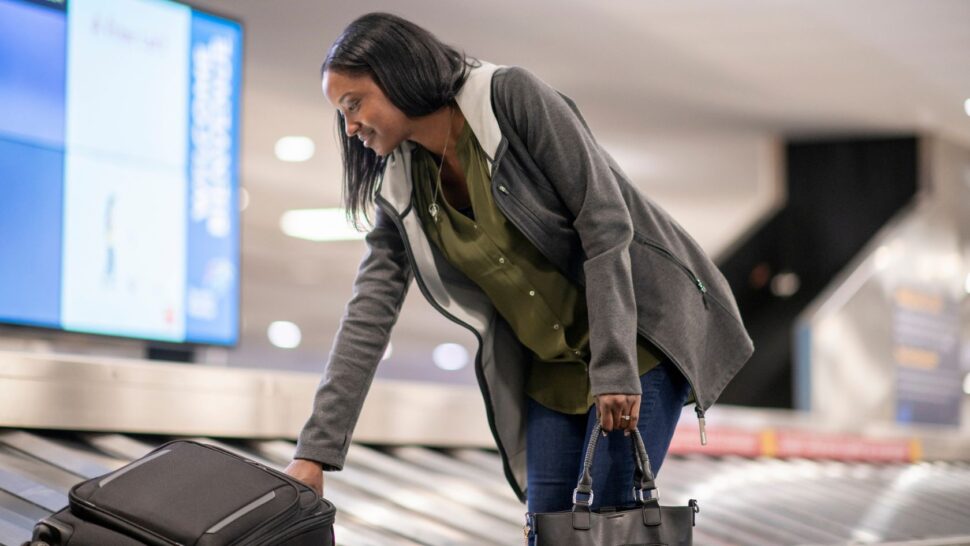Travel has come a long way since the days of Silk Road caravans and steam locomotives. The ever-evolving landscape of the industry shows no signs of slowing down. In fact, concepts that once seemed plucked from the pages of a science fiction novel are quickly becoming the norm, reshaping every aspect of the travel experience.
From futuristic modes of transportation to cutting-edge technology, here’s a glimpse into the exciting developments that lie ahead.
Biometric Identification: Goodbye to Airport Lines?
Biometric identification, utilizing techniques such as facial recognition and iris scans, is rapidly becoming the preferred technology for airport screening worldwide. Promising faster and more accurate passenger processing, biometrics has the potential to revolutionize procedures like check-in, lounge access, boarding, and immigration control.
Airports like Dubai International have already implemented biometric Smart Gates tunnels, allowing travelers to verify their identities within seconds, bypassing the need for long lines and tedious interactions with immigration officers. Major airlines, including Emirates and American Airlines, have also embraced biometric identification, streamlining the travel process for their passengers.
Tech Solutions for Lost Luggage

The frustration of lost or mishandled luggage may soon become a thing of the past. Travelers are turning to innovative solutions like SmartTags, Tile Pros, and AirTags to track their belongings in real-time. Additionally, advanced suitcases like Samsara’s Tag Smart, equipped with integrated AirTags and Bluetooth connectivity, offer enhanced peace of mind.
In the future, digital bag tags containing RFID transmitters could replace traditional paper tags, simplifying check-in processes and enabling airlines to easily track and identify luggage. Airlines like Alaska Airlines, Lufthansa, and Qatar Airways have already partnered with companies like BAGTAG, allowing travelers to register and activate their digital bag tags at home.
Augmented Reality Will Enhance Travel Experiences
Imagine exploring a museum guided by a talking sculpture or embarking on a digital treasure hunt through the streets of Paris. Augmented reality can bring a new dimension of intrigue to travel experiences, requiring nothing more than a smartphone and an internet connection. AR and virtual reality gained popularity during the pandemic, providing virtual travel experiences and offering travelers a glimpse into their destinations before making reservations.
Companies like Specterras Productions are already using AR to make natural and cultural wonders more accessible. This technology allows visitors to experience exhibits and destinations like Pompeii or the Great Barrier Reef in ways previously unimaginable.
Flying Taxis and Robotaxis: Taking to the Skies and Streets
Flying taxis and electric vertical take-off and landing (eVTOL) aircraft are no longer confined to science fiction. Companies like LIFT Aircraft and Ehang are paving the way for a new era of urban transportation. LIFT Aircraft’s amphibious HEXA aircraft allows everyday people to fly without a pilot’s license, thanks to its ultralight classification. Meanwhile, Kelekona plans to offer battery-powered drone bus flights as an eco-friendly alternative to traditional mass transit. In Singapore and Paris, Volocopter aims to launch electric air taxis by 2024. These advancements will revolutionize transportation within cities and provide access to previously hard-to-reach destinations.
Robotaxis are another innovation gaining momentum. Motional, a joint venture between Hyundai and Aptiv, offers autonomous robotaxis in Las Vegas, with plans for full driverless operation in the near future. Waymo, a subsidiary of Alphabet Inc., has been operating a fully autonomous ride-hailing service in parts of Phoenix since 2020, with plans for expansion. These developments signal a future where self-driving vehicles become a common sight on city streets, providing efficient and reliable transportation options.
The Future of Travel

As technology continues to advance, the future of travel holds immense potential. Biometric identification promises to streamline airport processes, reducing wait times and enhancing security. Innovative luggage tracking solutions offer peace of mind to travelers worried about lost bags. Augmented reality opens up new possibilities for immersive exploration and cultural experiences. Flying taxis and robotaxis provide efficient and eco-friendly transportation alternatives. The travel industry is on the cusp of a new era, where sci-fi concepts become everyday realities.
While these developments bring excitement and convenience, they also raise questions about privacy, safety, and accessibility. Striking a balance between technological innovation and ethical considerations will be crucial as these advancements become more widespread.
Travelers stand on the precipice of a transformative era in how people explore the world. With each new innovation, the boundaries of possibility expand, promising a future where travel is more efficient, immersive, and sustainable. Fasten your seatbelts and prepare for a journey into a realm of endless possibilities. The future of travel has arrived, and it’s waiting to be explored.
 Unmanned Aerial Vehicle The latest drone news
Unmanned Aerial Vehicle The latest drone news




